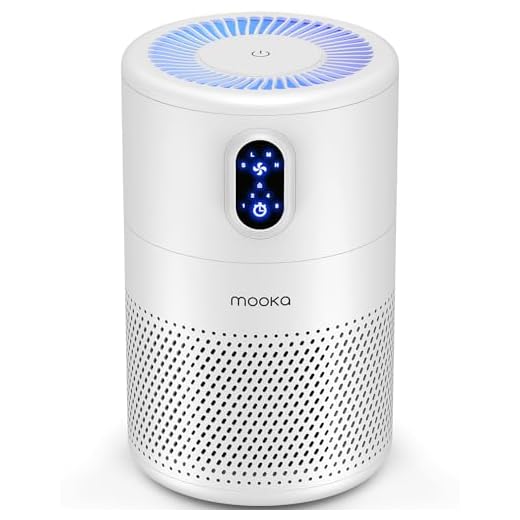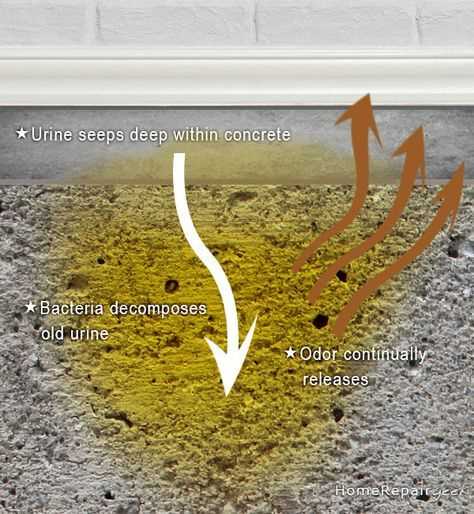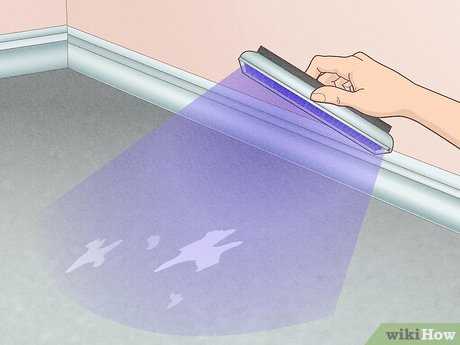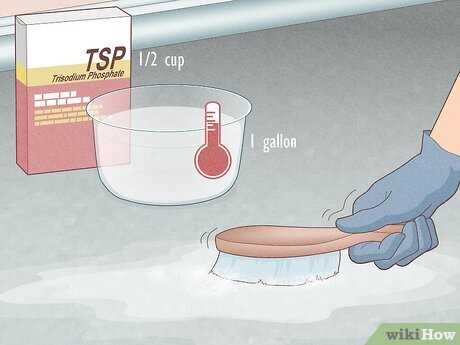



First, grab some paper towels or an absorbent cloth and blot the area immediately. This helps to soak up as much liquid as possible before it settles into the surface.
Next, mix a solution of equal parts water and white vinegar. This combination not only neutralizes odors but also helps to break down any lingering stains. Apply it generously to the affected area, then let it sit for about 10-15 minutes.
After letting the mixture work its magic, scrub the spot with a stiff brush or a sponge to lift any remaining residue. Rinse the area thoroughly with clean water to remove any vinegar smell.
For persistent odors, sprinkle baking soda over the damp surface and let it sit overnight. This natural deodorizer will absorb any remaining scents. The following day, vacuum up the baking soda and enjoy a fresher space!
Removing Unwanted Odors from My Territory
If you’re dealing with unpleasant smells on hard surfaces, here’s what I suggest:
- Grab a strong enzymatic cleaner specifically designed for tough odors. Look for one that breaks down organic matter.
- Pour the cleaner generously over the affected area, ensuring it soaks into any cracks or crevices.
- Let it sit for at least 10-15 minutes. This allows the ingredients to work their magic and neutralize those unwanted scents.
- Scrub the area with a stiff-bristled brush. This helps lift any residue that may be clinging on.
- Rinse thoroughly with water. A hose works well, but if you don’t have one, a bucket will do.
- For stubborn odors, repeat the process or consider using a vinegar solution (mix equal parts vinegar and water) as a second step.
- Afterward, let the area dry completely. Fresh air helps eliminate lingering smells.
Keep an eye on the spot. If the scent returns, it might be worth reapplying the cleaner or using a different product.
Identify the Affected Area
First, locate the precise spot where the unpleasant substance has soaked into the surface. Check for discoloration, a lingering odor, or dampness, as these are clear indicators of the problem. If the area is dry, try using a damp cloth to see if it reveals any hidden traces. Use your nose too; it’s a reliable tool for detecting the scent even if the surface looks clean.
Consider the surrounding environment. Is it near a favorite resting place or a spot where I often hang out? This can help narrow down the search. Pay attention to cracks or crevices in the flooring where the liquid might have seeped in. Mark the area with tape or a marker to ensure you know exactly where to focus your efforts later.
For a thorough assessment, use a black light in a dark room. This tool can reveal any residual marks that are not visible to the naked eye, allowing for a comprehensive approach to address the issue. Once the affected area is identified, it becomes easier to tackle it effectively.
Gather Necessary Cleaning Supplies

To tackle the mess effectively, gather the following items:
| Item | Purpose |
|---|---|
| White Vinegar | Neutralizes odors and breaks down stains. |
| Baking Soda | Absorbs moisture and eliminates lingering smells. |
| Dawn Dish Soap | Helps remove tough residues and dirt. |
| Spray Bottle | For mixing solutions and easy application. |
| Scrub Brush or Sponge | For scrubbing the surface thoroughly. |
| Water | To dilute solutions and rinse the area. |
Make sure to wear gloves to protect your paws while working on the area. Once everything is ready, you can proceed with the cleaning process. It’s also important to keep your living space comfortable, so check the house temperature for cats to ensure a pleasant environment.
Blotting and Initial Cleanup Steps
First, grab some paper towels or an absorbent cloth. Gently press it against the affected area to soak up as much liquid as possible. Don’t rub; just blot. This helps to avoid pushing the liquid deeper into the surface. Make sure to change the towels frequently until you see minimal moisture.
Next, after blotting, prepare a mixture of warm water and a mild detergent. Dampen a clean cloth with this solution and wipe the area thoroughly. This step helps remove any remaining residue and reduces odor. Rinse the cloth frequently to avoid spreading any contaminants around.
For those stubborn spots, I recommend using a specialized enzymatic cleaner designed for tough stains. Apply it according to the instructions, ensuring it penetrates the surface. This will help break down any lingering particles.
Final Touches
Once the area is clean, allow it to air dry completely. If you want to ensure the smell is completely gone, sprinkle some baking soda over the area and let it sit for a few hours before vacuuming it up. This can help absorb any remaining odors.
If you’re dealing with outdoor surfaces, consider whether pressure washing might be an option for other areas, like your picnic table. You can check if can picnic tables be pressure washed for more tips.
Applying Cleaning Solutions to Remove Odor
Mix a solution of equal parts white vinegar and water in a spray bottle. This helps neutralize unpleasant scents effectively.
Spray the affected area generously, ensuring it soaks into the surface. Let it sit for 10-15 minutes. The vinegar will help break down the odor-causing compounds.
After the waiting period, use a scrub brush or cloth to agitate the surface. This action helps lift any remaining residues.
Rinse thoroughly with clean water. Use a mop or cloth to soak up excess liquid, ensuring the area is not left damp.
For persistent odors, consider using an enzymatic cleaner specifically designed for organic stains. These products contain enzymes that digest the odor-causing substances.
Apply the enzymatic cleaner according to the manufacturer’s instructions. Allow it to sit for the recommended time to maximize effectiveness.
Afterward, rinse the area again and let it air dry. This process helps eliminate any lingering smells.
For extra odor-fighting power, sprinkle baking soda over the dried area. Let it sit overnight, then vacuum it up. This step helps absorb any remaining odors.
Regularly check the area for any signs of odor returning, and repeat the process as necessary to maintain freshness.
Rinsing and Drying the Concrete Surface
After applying the cleaning solutions, it’s time to rinse the surface thoroughly. Use a hose with a spray nozzle or a bucket of clean water to wash away any residue from the cleaning agents. Ensure the water flows over the treated area and carries away all the remnants of the cleaning products.
Next, absorb excess moisture with a clean towel or mop. For larger areas, a wet/dry vacuum can be very helpful to extract the water effectively. It’s important to remove as much liquid as possible to prevent any lingering odors.
Once rinsed, allow the area to air dry completely. If the weather is sunny, open windows or doors to promote airflow. If indoors, consider using fans to speed up the drying process. Proper ventilation helps in eliminating any remaining scents.
Check the surface after drying. If any odors persist, repeat the rinsing and drying steps until the area is fresh and clean.
Preventing Future Incidents
To avoid mishaps, ensure all litter boxes are clean and accessible. I recommend placing one in every significant area of the house. This way, I won’t feel the urge to find other spots.
Use high-quality, unscented litter. Strong fragrances can deter me from using the box. It’s essential to keep the litter at an appropriate depth–about two to three inches is perfect for comfort.
Behavioral Considerations

Pay attention to my habits. If I start avoiding the litter box, it could indicate stress or health issues. Regular vet check-ups are key. Also, consider my environment; I prefer a quiet and safe space for my business.
Positive Reinforcement

Reward me for using the designated areas. Treats and affection will encourage me to continue using them. A little praise goes a long way in maintaining good habits!
FAQ:
What are the best methods to remove cat urine from concrete?
To effectively remove cat urine from concrete, you can follow these methods: First, blot up as much of the urine as possible with paper towels or a cloth. Then, mix a solution of equal parts white vinegar and water and apply it to the stained area. Let it sit for about 10-15 minutes before scrubbing with a brush. Rinse the area with clean water and let it dry. If the odor persists, consider using an enzymatic cleaner specifically designed for pet urine, as it can break down the compounds in the urine and eliminate the smell.
How can I prevent my cat from urinating on concrete surfaces again?
Preventing your cat from urinating on concrete involves a few strategies. First, ensure your cat is using the litter box consistently by keeping it clean and placing it in a quiet, accessible location. Providing multiple litter boxes can help if you have several cats. Additionally, you can use deterrents like citrus-scented sprays or commercial cat repellents on the concrete surface. Lastly, addressing any underlying behavioral or health issues with your cat is essential, as stress or medical problems can lead to inappropriate urination.
Are there any specific products recommended for cleaning cat urine from concrete?
Yes, there are several products that are effective in cleaning cat urine from concrete. Look for enzymatic cleaners, which break down the urine compounds and eliminate odors. Brands such as Nature’s Miracle and Rocco & Roxie are popular choices. You can also use a mixture of baking soda, hydrogen peroxide, and dish soap as a homemade cleaner. Apply the mixture to the stained area, let it sit for a while, scrub, and then rinse. Always test any cleaner on a small, inconspicuous area first to ensure it does not damage the concrete.









